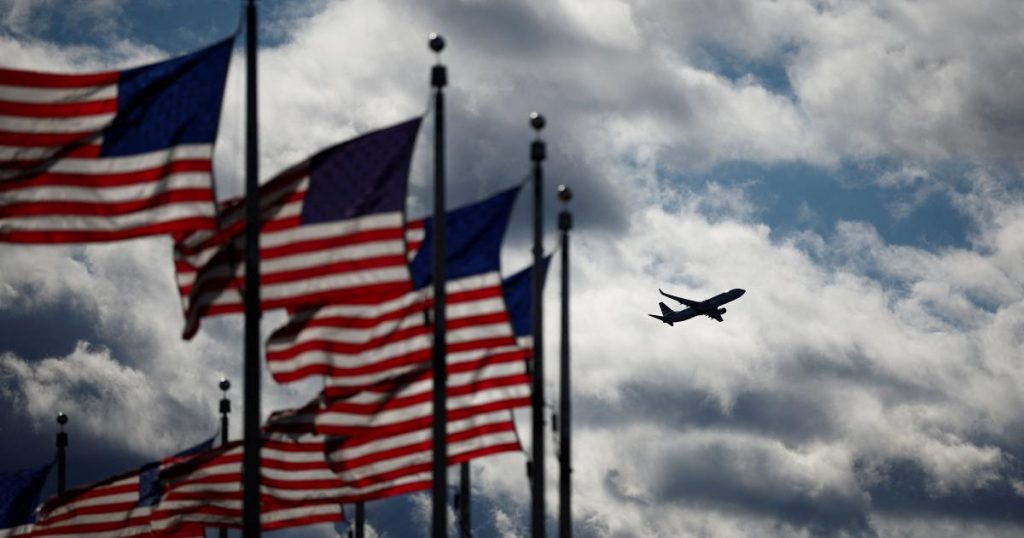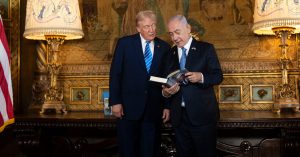The return of Donald Trump to the White House has been cast by many observers as the end of an era. The U.S.-led order, variously described as the rules-based order or the liberal international order, which rose to its feet after World War II and strode triumphantly around the world after the end of the Cold War, is no more. Indeed, U.S. Secretary of State Marco Rubio described that order as “obsolete” during his confirmation hearings in January. A stark vision of the world has emerged in its absence: one in which national interest alone governs international relations, transaction is the name of the game, and might makes right.
For many in the developing world, the death of the U.S.-led order seems nothing to mourn. After all, as these countries often point out, the liberal international order was frequently not liberal, international, or ordered. It also struggled to include non-Western countries in meaningful ways. The governments of so-called middle powers, such as Brazil and India, have long complained that global institutions and structures remain disproportionately aligned with the interests of wealthy countries to the detriment of all others.
The global South is an amorphous and much-debated category, encompassing a very broad range of countries. Simply put, it describes the vast majority of the world’s people, living in countries that were by and large once colonized in Africa, Asia, the Middle East, and Latin America. Some observers add China to the mix—in the United Nations, China is listed as a member of the G-77, the coalition of developing countries—but its inclusion is confusing. The world’s main manufacturing economy can hardly be considered a developing country, even if Beijing insists to the contrary. But what seems to unite this enormous grouping of states is a shared dissatisfaction with the international order as it exists.
One way global South countries want to change that order is by reforming multilateral institutions, such as the UN Security Council, the World Bank, and the International Monetary Fund, to make them more representative. That effort faces serious headwinds and seems unlikely to yield meaningful results in the near future. But these countries have also signaled an interest in replacing the dollar as a reserve currency and an instrument for trade. And wittingly or not, they are carrying China’s water by supporting its positions on contentious issues related to the environment, human rights, and democratic governance. In an era of great-power competition, such advocacy from the global South risks playing into Beijing’s hands, abetting China’s rise and speeding the United States’ decline.
This is a misguided, contradictory, and unnecessary effort. Instead of seeking a new international order, the global South should try to make the current one work—even as the new occupant of the White House seems ready to jettison international norms. Indeed, Trump’s reelection makes such a focus more urgent, even if the global South can’t expect great results while he is in office. The rules-based order may have been riddled with inconsistencies, but at least it had rules, especially in the form of international treaties aimed at securing the common good. It is in the interests of the global South to uphold and strengthen these treaties. The current international order needs much greater commitment from the United States; the world does not require less American involvement, but rather a good deal more.
A world regulated and organized around clear, well-defined, and rigorous laws that are respected by all, especially by the most powerful and wealthy, is much to the advantage of the globe’s poorer countries. Whether it be on trade, human rights, women’s rights, the environment, disarmament, labor, or mining on land or in the sea, international law often favors weak, poor, and small countries. Turning away from the U.S.-led order and bolstering China would do little to protect international law. Indeed, it would invite the steady erosion of what has been the world’s most successful legal regime and leave the global South vulnerable to a more dangerous law altogether: the law of the jungle.
AN INCOMPLETE ORDER
It is abundantly clear that the United States has retreated from the order it built after World War II, a move that will likely only gain speed under Trump. The United Nations remains the paradigmatic institution of that order and a key place for the global South to advance its interests. Trump’s decision to appoint the combative Republican lawmaker Elise Stefanik as his UN ambassador suggests that the president wants to take an adversarial stance toward the organization. But even before Trump’s reelection, the United States had been systematically reducing its participation in the UN, UN agencies, and other multilateral institutions.
The United States has once again exited the World Health Organization after initially leaving the institution during Trump’s first term. In the past, U.S. governments have withdrawn from and suspended dues payments to UNESCO, the UN’s cultural body. Prior administrations have repeatedly refused to acknowledge the jurisdiction of the International Court of Justice and insisted that they cannot comply with the court’s rulings. The United States withdrew from the International Labor Organization in the 1970s and has ratified only 14 of its 189 conventions. Trump has again left the Paris climate accord after initially pulling the country out during his first term.
On global trade and other economic matters, the United States has recklessly undermined the system it built. Trump’s tariff wars with both longtime partners and adversaries are only the latest example of a growing tendency to turn away from free trade. Take, for example, U.S. neglect of the World Trade Organization. Since 2017, Washington has not appointed panel members to the WTO’s dispute settlement mechanism, paralyzing a body that is supposed to iron out disagreements over global trade. This practice began during Trump’s first term but continued during the Biden administration and will likely remain an obstacle with Trump back in the White House.
The United States is not contemplating withdrawing from the International Monetary Fund or the World Bank, but it has made reforming them exceedingly difficult. It took Congress five years to approve the last reform of IMF voting rights and quotas in 2010, when the fund approved a six percent shift in quota shares to underrepresented IMF members. Since 2010, further reform has proved nearly impossible. Much as reform of the UN Security Council remains stalled, so, too, does reform of the IMF and the World Bank—institutions long dominated by the West. Both organizations seem unlikely to cede much weight to global South countries. And it’s highly doubtful that the new Trump administration will want to expend any kind of political capital further opening these institutions.
The world does not require less American involvement, but rather a good deal more.
This neglect of its role in major organizations is less significant than how the United States has failed to uphold international law. U.S. lawmakers have habitually refused to ratify the treaties advanced by presidents and other U.S. politicians. The list begins with the League of Nations, which was approved in 1919 by all the participants at the Versailles Conference, including U.S. President Woodrow Wilson. The Senate rejected it the next year and the United States never joined the League, the first in what would become a long sequence of international agreements that Washington either signed but did not ratify, signed and then withdrew from, or never signed in the first place.
More recently, the United States has failed to ratify the Arms Trade Treaty, which seeks to control the trade in conventional weapons and entered into force in 2014, as well as the multilateral trade agreement known as the Trans-Pacific Partnership, which the United States signed in 2016 but never ratified and from which Trump would eventually withdraw. Domestic opposition has also proved an insurmountable barrier to ratifying climate treaties, such as the 1997 Kyoto Protocol, making implausible an overarching climate compact—that is why the 2015 Paris climate accord was simply an accord, not an “agreement.”
U.S. lawmakers have resisted ratification of major treaties for several reasons. These include concerns about compromising national sovereignty, upsetting the American system of federalism that leaves certain matters to the states, and duplicating existing domestic legislation. That reluctance to commit to treaties has no doubt undermined the construction of a credible international order. Take, for instance, the International Criminal Court. In 2000, U.S. President Bill Clinton signed the Rome Statute that created the court; it was never ratified, and his successor, President George W. Bush, removed the U.S. signature, making the emergence of a far-reaching and capable ICC practically impossible. To be sure, in some cases, Washington abides by the provisions of these treaties even if it hasn’t ratified them, including the Arms Trade Treaty. That might be better than not observing these treaties, but it always begged the question of how the United States could criticize other non-ratifiers for violating the articles of a given convention if it had not ratified the convention itself. It also made the United States into something of a free rider: Washington enjoyed the benefits of a system of international rules without assuming any responsibility for supporting or enforcing them.
Consider the American Convention on Human Rights, adopted by many countries in the Western Hemisphere in 1969 and signed but not ratified by the United States. The U.S. failure to ratify this treaty has inevitably weakened the defense of human rights in Latin America, allowing dictatorships and democratic backsliders greater impunity. Such instruments are especially needed now, when human rights are threatened in many parts of the hemisphere, including in the United States.
For countries in the global South, this American disinterest in the preservation of the postwar order U.S. leaders helped build is only bad news. It is in the interests of poorer and less powerful countries to have a firm structure of international law mediating the conduct of states. Take, for instance, the 1982 UN Convention on the Law of the Sea, which set up the International Seabed Authority headquartered in Jamaica. The United States never signed this convention. Poorer coastal countries lack the technology and capital to scoop up manganese nodules and other crucial minerals that lie on the sea floor. Rich countries have both the technology and the funds. Unlike the Arms Trade Treaty, the United States does not abide by many of the provisions of UNCLOS, particularly regarding seabed mining. An international ocean regime that regulates mining and the exploitation of the seabed and encourages the sharing of its resources is far better for the global South than a free-for-all in which anything goes.
FINISH THE JOB
It might be impossible to reform the Security Council, the IMF, the World Bank, and other fixtures of the current international order. But convincing the United States to sign and ratify this panoply of international instruments might be plausible. Washington has either failed to ratify or chosen to withdraw from nearly 50 major treaties. Under Trump and with the resurgence of isolationism among Republicans—and with treaty ratification requiring two-thirds support in the Senate—their formal approval seems a very distant prospect.
That should not stop global South countries from trying to pressure the United States to renovate the house it built. They can play a constructive role in encouraging the United States to better uphold the rules-based order. They are quick to condemn Washington for its hypocrisy, but they don’t do anything to persuade the United States to better adhere to the rules that define the U.S.-led order itself. Instead, they should use a commonplace method in Washington to change opinions and facilitate legislation: lobbying.
Americans, and Republican legislators especially, tend to dislike the meddling of foreigners in their affairs. But many countries have begun taking their cases to Washington to shape bilateral relations. China, India, the Gulf states, and the larger European countries all hire expensive and highly reputed lobbying and white-shoe law firms to advance their interests in Congress. Canada has done so on a large scale, on everything from dairy products to lumber, fishing, and border regulations. Mexico lobbied U.S. legislators intensely and successfully in 1993 to win passage of the North American Free Trade Agreement. In principle, such practices could extend to persuading the United States to ratify international agreements. Countries that are not aligned with China, such as Brazil, India, Mexico, Nigeria, and South Africa, could take the lead in this effort, striving to convince U.S. lawmakers that they should help complete, rather than unwind, the rules-based order. Such ratifications would win Washington a great deal of goodwill in the global South—and undermine Beijing.
This would not be a short-term task; it would take a decade at least and require navigating the complexities of the Trump administration and subsequent dispensations. But with skill and sufficient resources and patience, such an effort could produce meaningful results. The global South should make clear to the United States that the only way it can weather the Chinese (and Russian) challenge is through alliances and partnerships that reach beyond the traditional West. One of the best ways to build and consolidate those ties is by ensuring respect for international law.
A global South with a more universalist and constructive agenda could make a real difference. Its leading countries, through their growing size, wealth, and prestige, could help build a world order that is not only more just but more codified, regulated, and respectful of international law. The law can be a tremendous instrument for reducing inequality within countries; so, too, can it achieve the same result among countries. A world of treaties and international law will be far better than one without them.
Loading…









